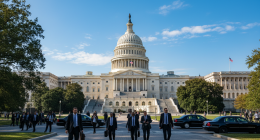New Tax Policy Under Consideration
Boosting Local EV Production
Thailand’s Ministry of Finance is exploring a plan to increase excise taxes on imported electric vehicles (EVs) with low local content, aiming to strengthen the domestic automotive industry. The policy, still in development, targets vehicles like electric pickup trucks, which are seen as a growth area for Thailand’s EV sector. By prioritizing locally sourced components, the government seeks to create a competitive edge for manufacturers investing in Thailand’s burgeoning EV ecosystem.
Addressing Import Tariff Disparities
Impact of Free Trade Agreements
The proposed tax hike focuses on EVs imported from countries like China, which benefit from a zero-import-tariff agreement under Thailand’s free trade deal. These imports, often lacking significant local content, create an uneven playing field for automakers from other nations facing tariffs of 40% to 80%. The Excise Department is working to address this imbalance by imposing higher excise taxes on vehicles with minimal or no Thai-made components, ensuring fairer competition.
Support for Domestic Manufacturing
Collaboration with Board of Investment
The Excise Department is partnering with the Board of Investment (BoI) to craft measures that incentivize local production. Importers meeting BoI’s local content requirements could qualify for tax benefits or other support, particularly in the electric pickup truck segment. This initiative aligns with Thailand’s ambition to become a regional hub for EV manufacturing, encouraging foreign automakers to source components like car seats from Thai suppliers.
Thaksin’s Call for Local Content
Former PM’s Vision for EVs
At the “Unlocking Thailand’s Future” conference on July 17, 2025, former Prime Minister Thaksin Shinawatra advocated for higher excise taxes on imported EVs with low local content. He argued that zero-tariff imports undermine Thailand’s automotive industry, urging manufacturers to incorporate locally made parts. Thaksin highlighted car seats as a practical example of components that could boost domestic production while maintaining quality standards.
Environmental Benefits of EV Push
Reducing Fuel Dependency
Thaksin also emphasized the environmental upside of promoting EVs, noting that Thailand’s daily consumption of 60 million liters of diesel, 25 million liters of gasoline, and 10 million liters of other fuels strains resources equivalent to a 40,000-megawatt power plant. Shifting to EVs could curb pollution and reduce reliance on fossil fuels, aligning with global sustainability goals. The proposed tax policy supports this transition by fostering a robust local EV industry.
Green Energy Ambitions
Thailand’s Path to Sustainability
Beyond tax reforms, Thaksin proposed transforming Thailand into a green electricity hub, leveraging solar energy to generate 40,000 megawatts for round-the-clock power. This would require approximately 1.4 million rai of land, a feasible goal given Thailand’s available space. He suggested the Electricity Generating Authority of Thailand (Egat) establish a dedicated “Green Egat” division to lead this initiative, reinforcing the country’s commitment to sustainable energy and EV adoption.









